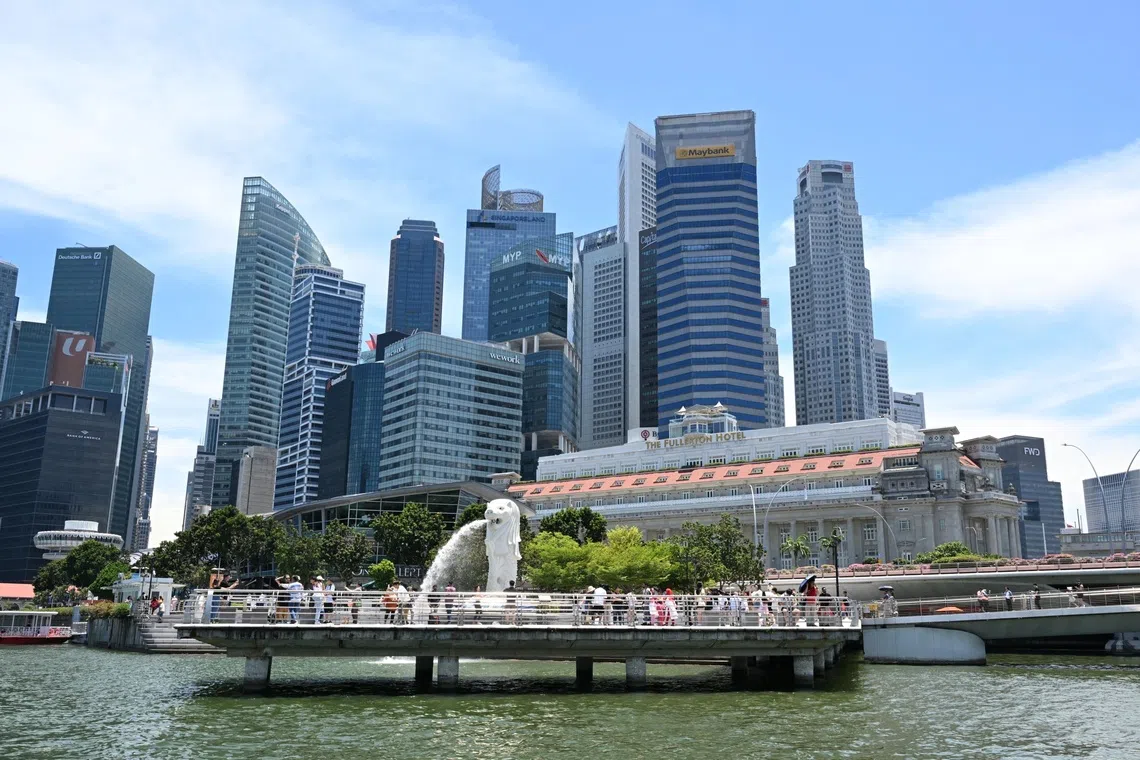Singapore’s tourism sector actively hiring as new roles emerge in tech and sustainability
Sign up now: Get ST's newsletters delivered to your inbox

The openings ranged from data management and business intelligence analysts to international ski and snowboard management trainees.
PHOTO: ST FILE
Follow topic:
SINGAPORE – The tourism sector is actively hiring, with more than 5,000 job postings offering about 6,700 vacancies on Workforce Singapore’s MyCareersFuture portal in the second quarter of 2025, said the Singapore Tourism Board (STB) on Oct 17.
Close to 700 positions were available from more than 20 exhibitors – hotels, event organisers, attractions and travel agencies – at a career fair held at the inaugural Singapore Hospitality and Tourism Conference on Oct 17, STB said in a statement.
Ms Rachel Loh, STB’s executive director for hospitality and tourism talent, told the media that careers in the sector are evolving beyond traditional front-line roles.
Aside from tourism-specific roles such as the managing of ski and snowboard training centres, and leading snow-sport trips abroad, career opportunities are also emerging in areas such as data science, creative design and sustainability.
The one-day conference, held alongside travel trade show ITB Asia, aimed to “inspire students and graduates to explore rewarding career pathways in tourism”, said STB.
The agency added that hiring momentum is expected to continue as new hotels – such as Hotel Waterloo Singapore, Handwritten Collection and Varel Singapore, a Tribute Portfolio Hotel – are slated to open by the end of 2026. This would add more than 1,500 hotel rooms to the current stock.
STB noted: “These extensive job opportunities reflect the tourism sector’s resilience, supported by strong employment trends.”
As at June 2025, Singapore’s total tourism workforce stood at 75,000, up by more than 8 per cent from 69,000 a year earlier, it said.
Asked why the sector had such a large number of vacancies, Ms Loh cited two main factors: growing demand and competition for talent. Referring to growing demand, she said that beyond the new hotel openings, STB aims to triple Mice (meetings, incentives, conferences and exhibitions) receipts by 2040, so they would account for an estimated 10 per cent of tourism receipts – up from about $1.4 billion, or 4 per cent of tourism receipts in 2019.
On the competition for talent, she said that as tourism roles evolve to include areas such as data analytics, sustainability and event technology, the sector is now vying with other industries for workers with such specialised skills.
Beyond filling vacancies, Ms Loh noted that the nature of tourism work itself is changing. Technology, including artificial intelligence (AI), will increasingly complement workers rather than replace them.
“If the job is dirty, if the job is duplicative, and if the job is dangerous – those are the areas where we should be bringing in technology. We don’t want to continue creating those jobs.”
This would then free tourism staff from repetitive tasks so they can undertake meaningful, high-value interactions with guests and enhance their overall service experience, she added.
Ms Loh said Singapore’s tourism outlook remains positive despite global economic uncertainties.
While hotel room rates dipped slightly in the first half of the year, she attributed this to “broader global economic uncertainty”, and added that demand has since rebounded strongly.
“We were a little bit worried when we started seeing the numbers drop,” she said. “But the good news is that... July and August were very strong months for the hotel sector.”
Ms Loh noted that Singapore continues to perform better than many regional markets; occupancy rates are in the high-80s to low-90s, and room revenues are trending above those in destinations such as Japan.
This reflects steady underlying demand and a resilient tourism recovery that is stabilising after a sharp post-pandemic surge, she said.
Referencing Singapore’s road map for the next decade of tourism growth, Ms Loh said that as the country executes its Tourism 2040 strategy, it is important to build a future-ready sector by transforming businesses, growing skills and creating good jobs.
“This means aspiring tourism professionals need evolved skill sets, including digital and AI literacy and sustainability expertise,” she noted.
Mr Fu Chuan Chong, director of Republic Polytechnic’s School of Hospitality, said that institutes of higher learning are updating their hospitality and tourism programmes to meet industry needs.
These include work-integrated learning, industry projects and continuing education courses to equip both students and workers with relevant skills. THE BUSINESS TIMES

